The Spanish state has stepped up its attempts to repress the movement for independence in Catalonia. But they have faced unexpected obstacles – from the courts and from the masses.
The Spanish regime’s strategy of repression against the Catalan independence movement suffered a serious blow recently, when a German court in Schleswig-Holstein decided there were no grounds to extradite Catalan President Carles Puigdemont for rebellion. Additionally, a series of decisions by the Belgian justice system further undermined the position of the Spanish regime.
Catalan president Puigdemont was arrested in Germany on 25 March [see article below]. The Spanish secret service had followed him as he travelled back from Finland, where he had attended a public meeting, to Belgium: his place of residence since he left Catalonia on October 29 to avoid arrest. Spain had issued a euro-arrest warrant against him while in Belgium, but then withdrew it when it became clear that the Belgian courts would not accept extradition for rebellion, a crime that doesn’t exist in that country’s penal code.
The Spanish state thought that this would not be a problem in Germany, where an equivalent crime, high treason, does exist. Furthermore, Merkel is regarded as a close political ally to Spanish right-wing premier Rajoy and the Spanish state it would be a matter of course for the Germans to proceed with the euro-arrest warrant and extradition request. The German State Prosecutor recommended that the request should be granted.
Legal gymnastics
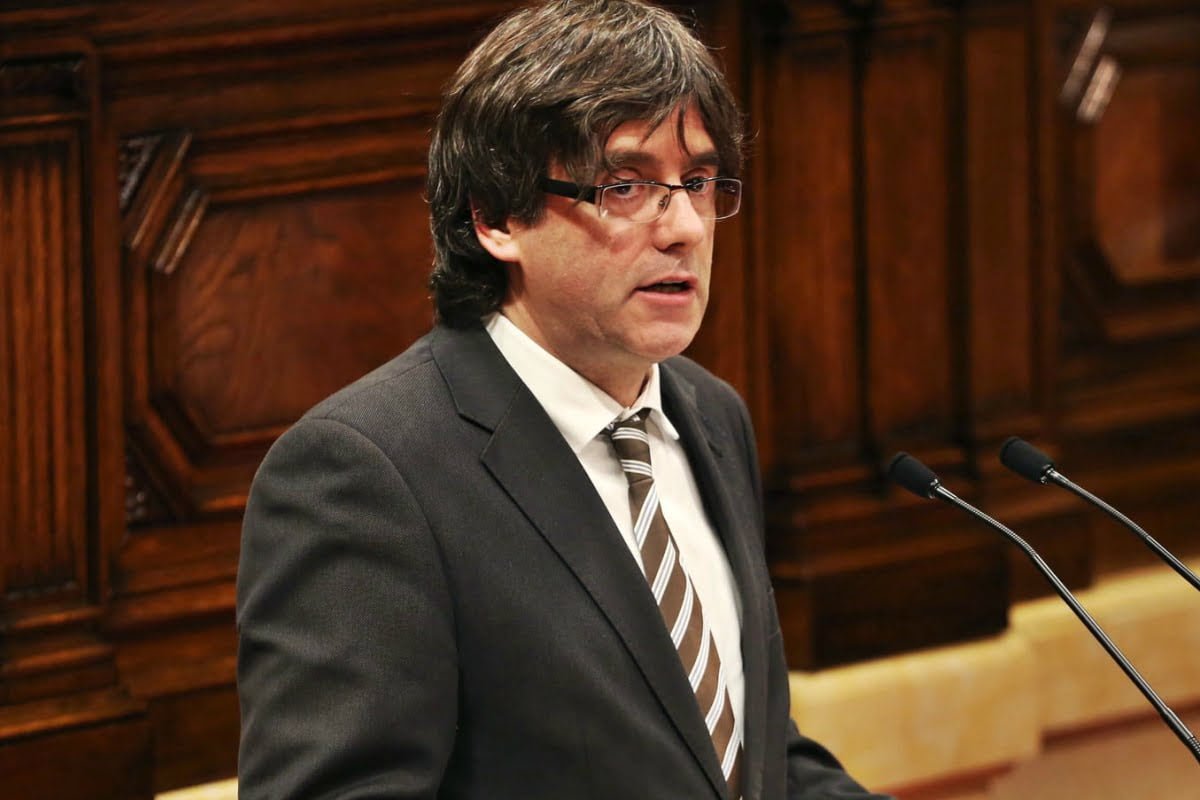 Yesterday, surprisingly, the Schleswig-Holstein Higher Regional Court that had to take the decision rejected extradition for the crime of rebellion and agreed to release Puigdemont on a €75,000 bail pending consideration of the details of the extradition request for the lesser charge of aggravated misuse of public funds. This decision throws the whole strategy of the Spanish regime into disarray.
Yesterday, surprisingly, the Schleswig-Holstein Higher Regional Court that had to take the decision rejected extradition for the crime of rebellion and agreed to release Puigdemont on a €75,000 bail pending consideration of the details of the extradition request for the lesser charge of aggravated misuse of public funds. This decision throws the whole strategy of the Spanish regime into disarray.
In its ruling, the regional court specifies that the reason to reject the charge of rebellion is that it cannot see there was any violence committed by Puigdemont during the 1 October referendum. This is a necessary requisite for the crime of rebellion, which in the Spanish penal code is described as a “violent uprising” against the state. Violence is also a necessary part in the German crime of high treason. “The eligible offense of high treason was not met because it lacked the feature of ‘violence’”, the German court declared, very clearly.
The whole case of judge Llarena in the Spanish Constitutional Court, involving dozens of Catalan politicians, is based precisely on the argument that they exercised violence to carry out the referendum and can therefore be indicted for rebellion, a charge that carries a jail sentence of up to 30 years.
The judge has had to carry out multiple legal pirouettes in order to include violence in his arguments for prosecution. The organisation and conduction of the Catalan independence referendum was completely peaceful on the part of its promoters. There was violence, yes, but that was on the part of thousands of police and civil guard agents sent by the Spanish state to physically prevent the referendum, which used brutal repression on the day against peaceful civilians attempting to cast their ballots.
Judge Llarena’s ‘argument’ is that the Catalan authorities “must have known” that the state would use its “monopoly on violence” to prevent the the referendum, therefore they are responsible for the violence of the Spanish state!
A blow to the regime
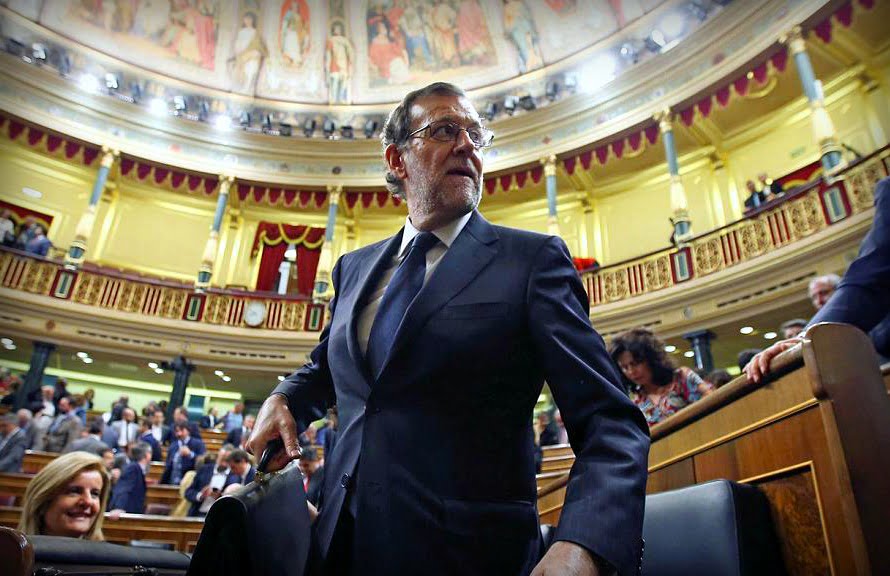 The decision of the German tribunal is a massive blow to the whole strategy of the Spanish state. Even if Puigdemont is finally extradited for misuse of public funds, the Spanish court cannot try him for rebellion. Since the charges against the Catalan politicians are part of one single prosecution, it is very unlikely that the others can now be tried for that charge, meaning the whole prosecution will crumble.
The decision of the German tribunal is a massive blow to the whole strategy of the Spanish state. Even if Puigdemont is finally extradited for misuse of public funds, the Spanish court cannot try him for rebellion. Since the charges against the Catalan politicians are part of one single prosecution, it is very unlikely that the others can now be tried for that charge, meaning the whole prosecution will crumble.
Furthermore, prosecution for rebellion implies inhabilitation for public office, even before trial, preventing Puigdemont and other Catalan politicians from being eligible for the position of president of the Catalan government – but this is not the case with misuse of public funds.
The Spanish state could still prevent Puigdemont from being elected as president by putting him in pre-trial detention, which they will probably will, but the arguments against this will now be stronger and such a move will be seen, even more, as a politically motivated action of interfering with the democratic will of the Catalan people.
The Spanish courts are already looking for ways to minimise the damage done. They will probably ask for the maximum sentence possible for aggravated misuse of public funds, which carries up to 12 years in jail. At the same time, unable to prosecute the others for rebellion, they could change the charge to sedition, which could mean up to 15 years in jail.
The embarrassment for the Spanish regime was compounded by two decisions of the Belgian justice system. First of all, a Belgian court decided to release Catalan ministers Toni Comín, Meritxell Serret and Lluís Puig. The judge has decided to not impose any cautionary measures nor ask for bail whilst they consider the extradition warrants requested by the Spanish state against the three.
Secondly, the Belgian Public Prosecution Service has opened an investigation into the use of a GPS tracker on Puigdemont’s car by the Spanish secret services while he was in that country. This action, which allowed the Spanish intelligence to follow Puigdemont on his way back from Finland and decide the exact country in which they wanted him to be arrested, could potentially have been carried out against Belgian law.
The decision of the German judge is also an embarrassment for the Spanish left, which while vaguely condemning in general terms “the judicialisation of a political conflict”, had fallen short of denouncing the jailing of Catalan politicians, demanding their immediate release and opposing the extradition of Puigdemont. More importantly, they had not lifted a finger in any practical way to mobilise against the repression of democratic rights that all these actions represent.
Solidarity from the European left
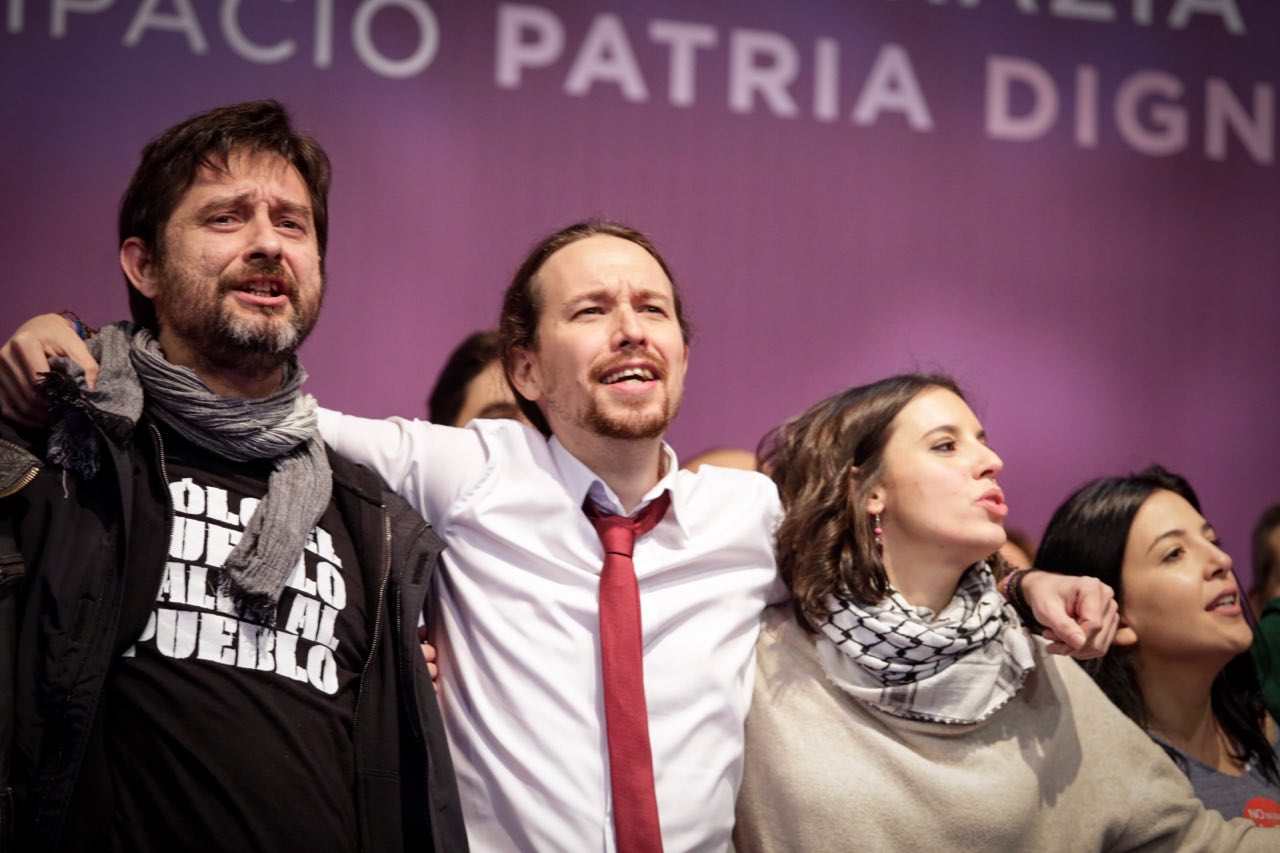 The embarrassment was aggravated by contrasting the lack of action by the leaders of PODEMOS and United Left, with the behaviour of their German, Portuguese and even French counterparts.
The embarrassment was aggravated by contrasting the lack of action by the leaders of PODEMOS and United Left, with the behaviour of their German, Portuguese and even French counterparts.
In Portugal, both the Communist Party and the Bloco d’Esquerda moved motions in parliament rejecting repression against Catalan politicians and demanding Puigdemont should not be extradited. The motions were defeated, but they managed to split the ruling Socialist Party. One clause of the motion, demanding a political solution to the Catalan issue, was passed.
In France, the Communist Party issued a statement openly demanding the release of Catalan political prisoners and opposing the extradition of Puigdemont, something the Spanish Communist Party couldn’t bring itself to do.
For its part, the German Die Linke party adopted a democratic and principled approach to the question, demanding Puigdemont should not be extradited, visiting him in jail and offering practical and legal support (including a permanent residence in Germany) and mobilising in the streets against the extradition.
In Spain though, it was left to a small group of activists around Madrileños por el Derecho a Decidir (‘Madrid for the Right to Decide’) to mobilise to oppose the extradition of Puigdemont. Had the leaders of Podemos and United Left taken a principled democratic stance on this question and mobilised to oppose the extradition of Puigdemont, the blow to the Spanish state delivered by the German courts would be more damaging and the left in Spain would benefit from it.
Bring down the Madrid government
As a matter of fact, the Spanish regime is in a very weak position at the moment. The mass movement of the 8 March women’s day strike and of the pensioners (which continues unabated) have created a different mood, one of confidence and militancy.
The ruling Popular Party has tried to agitate with the themes of Spanish tradition and unity during Easter, but that can only have an effect amongst the hardcore of its rank-and-file supporters. The party is now immersed in an extremely damaging scandal, as it has been revealed that Madrid Regional President, Cristina Cifuentes, forged her Masters degree. The web of lies with which it attempted to protect her is rapidly unravelling and the case could lead to her downfall.
The ruling PP calculated that an offensive against Catalonia, possible including images of Puigdemont arriving in Madrid in handcuffs, would guarantee the necessary support of Ciudadanos for its budget, which is now going to be put to Parliament. Even that was a complicated gamble, as the PP and Ciudadanos do not have the necessary majority and require the additional votes of the Basque Nationalist Party, whose rank-and-file is not pleased with the jailing of Catalan politicians. The decision of the German court weakens the PP even more.
In these conditions, the Spanish left should be organising a broad front against repression, in defence of democratic rights and against corruption; linking this with the more general demands of higher pensions, against cuts and austerity and so on. Such an offensive, with mass mobilisations in the streets, could bring the government down. The meekness and cowardice of the leaders of the Spanish left is a major impediment.
Mass response as Spanish state steps up Catalonia repression
By Jorge Martin
 The arrest of Carles Puigdemont in Germany on Sunday morning [25th March] was an escalation of the strategy of repression against those who dared call an independence referendum in Catalonia on 1 October.
The arrest of Carles Puigdemont in Germany on Sunday morning [25th March] was an escalation of the strategy of repression against those who dared call an independence referendum in Catalonia on 1 October.
On Friday [23rd March], five other politicians were jailed and another went into exile. These moves were met with a surge of anger from below, with mass demonstrations and road blockades on Friday and Sunday. Tens-of-thousands in the streets had two main slogans: “General strike” and “Parliament should decide who’s president”.
How did we get here? The 21 December Catalan election was called as a result of the Spanish state dismissing the Catalan government for having organised the 1 October independence referendum and then, after much vacillation and dithering, having declared a Catalan Republic on 27 October.
The polls returned, again, a pro-independence majority in the Catalan chamber headed by Puigdemont, the dismissed Catalan president who had gone in to exile. At that time, five members of the Catalan government were in exile and two were in jail, together with the ‘two Jordis’ (the leaders of the Catalan National Assembly and the Òmnium). Notably, all those jailed are in pre-trial detention without bail. They have not yet been found guilty of any crimes.
Exiled and imprisoned
 First, the Catalan parliament attempted to elect Puigdemont as president. The Spanish state blocked it by warning that if he came back to Spain to attend the investiture debate he would be arrested, and that taking part via a video link would be illegal.
First, the Catalan parliament attempted to elect Puigdemont as president. The Spanish state blocked it by warning that if he came back to Spain to attend the investiture debate he would be arrested, and that taking part via a video link would be illegal.
The leaders of the main pro-independence parties (JxCAT and ERC) acquiesced. Only the anti-capitalist, pro-independence CUP turned up for the session.
Then it was proposed that Jordi Sánchez (the jailed leader of the ANC and an elected Catalan deputy) should be president. The Spanish state again interfered by denying him permission to attend the debate. The leaders of the main Catalan independence parties, again, accepted this imposition.
Finally, the main Catalan, pro-independence parties agreed on Jordi Turull as a candidate for president. He was not in jail nor in exile. His candidature was in fact yet another concession on the part of JxCat and ERC to the unbearable infringements on the sovereignty of the Catalan Parliament by the Spanish state.
The debate was to take place on Friday 23 March. Once again the Spanish state interfered! This time, Supreme Court judge Llarena, in charge of the investigation into the 1 October referendum, decided to summon Turull and six other Catalan politicians on Friday, the same day Turull was to be debated as a candidate for president! Furthermore, Llarena hinted that, as a result they would probably be jailed. None of this is by chance.
The president of the Catalan Parliament, Roger Torrent (from ERC) then decided to bring forward the investiture debate to Thursday 22 March. In the first round of voting, Turull needed an absolute majority of votes and in the second round a simple majority. This meant getting more than 65 votes, the total of those who would vote against him – from the right wing PP and Cs, to the Socialist Party and Catalonia in Common: Podemos’ coalition in Catalonia. JxCAT and ERC had between them only 64 votes, as two of their deputies (Puigdemont and Comín) are in exile, preventing them from taking part in the vote. Crucially, Turull needed the 4 votes from the CUP to get elected.
All along, the CUP demanded two conditions for supporting a Catalan president: that his program should be to implement the republic the people had voted for on 1 October; and that this be accompanied with the implementation of a series of socially progressive laws, which had been deemed unconstitutional by the Spanish courts.
Turull’s proposed government did not fulfil either condition. JxCAT and ERC were asking for a blank cheque from the CUP and their track record was one of repeated concessions to the Spanish state. The CUP, after a hurried internal debate, decided two-to-one to abstain. Turull made an extremely meek investiture speech in which he did not even mention the word republic, nor the October referendum. He did not get the necessary number of votes.
The comrades of Revolució (International Marxist Tendency) made further arguments against voting for Turull, in addition to those from the CUP.
Turull is a long-time, leading figure of CDC (the Catalan bourgeois nationalist party) and in the past became known for personally defending CDC leaders involved in corruption scandals, as well as playing a personal role in the repression of the indignados who surrounded the Catalan Parliament in 2011 to protest against the passing of an austerity budget. Making him president would have sent a very negative signal. It would hinder the movement for a Catalan Republic from broadening its social base.
Furthermore, if ERC and JxCAT really wanted to face up to Spain’s repression, they just need to pass a ruling allowing Puigdemont and Comín to take part in the vote.
On Friday 23 March, five of the Catalan politicians summoned appeared in front of judge Llarena. The sixth, ERC leader Marta Rovira, went into exile to Switzerland where she joined CUP leader Anna Gabriel, also indicted and in exile. The five – Jordi Turull, Josep Rull, Carme Forcadell, Raül Romeva and Dolors Bassa – were jailed by judge Llarena.
There are now a total of nine Catalan politicians in pre-trial detention without bail, the others being Jordi Cuixart, Jordi Sànchez, Joaquim Forn i Oriol Junqueras; as well as a further seven in exile. Predictably, Turull’s meekness during the investiture debate did not save him.
Political revenge
In his formal indictment document, issued on 21 March, judge Llarena charged 25 leading Catalan politicians with crimes ranging from rebellion to disobedience and misuse of public funds.
The whole document is an absolute scandal. Let us remember that rebellion is a crime in the Spanish penal code (directly inherited from the Franco era) that implies a “public and violent uprising” against the state. In the whole process of organising the 1 October referendum, there was no violence on the part of those indicted. They never called for violence, they did not organise violence. The only violence, in fact, came from the Spanish police and civil guard, who were sent to Catalonia in their thousands with the sole aim of using violence to stop people from voting.
To get around this inconvenient fact, Llarena finds violence where there was none. He says in his indictment that the events on 20 September, when tens-of-thousands of peaceful protesters gathered outside the offices of the Catalan Department of Finance to reject a search being carried out by the Civil Guard, can be equated to “the taking of hostages by gun fire”!
There are plenty of other half-truths, exaggerations and straight lies in the document. This is a case of political revenge, which clearly demonstrates the farce of the ‘division of powers’ in a bourgeois democracy.
Threat to the regime
 The Catalan independence referendum placed in question one of the pillars of the Spanish state: the “indissoluble unity of Spain”, which is enshrined in the Constitution and is supposed to be guaranteed by the armed forces. If that is allowed to be challenged without a response, then who is to say that the monarchy will not be challenged? That the links of continuity between the current state apparatus and that of the Franco dictatorship will not be brought into question?
The Catalan independence referendum placed in question one of the pillars of the Spanish state: the “indissoluble unity of Spain”, which is enshrined in the Constitution and is supposed to be guaranteed by the armed forces. If that is allowed to be challenged without a response, then who is to say that the monarchy will not be challenged? That the links of continuity between the current state apparatus and that of the Franco dictatorship will not be brought into question?
This is therefore an existential question for the 1978 regime, which explains the ruthless and vengeful response to the Catalan referendum, and those who thereafter dared to proclaim a republic.
These politicians are in jail, exile or indicted for the only crime of organising a democratic referendum. They cannot be described in any other way than political prisoners or political exiles. They are a living proof of the narrow limits of the 1978 regime’s bourgeois democracy.
Mass mobilisation
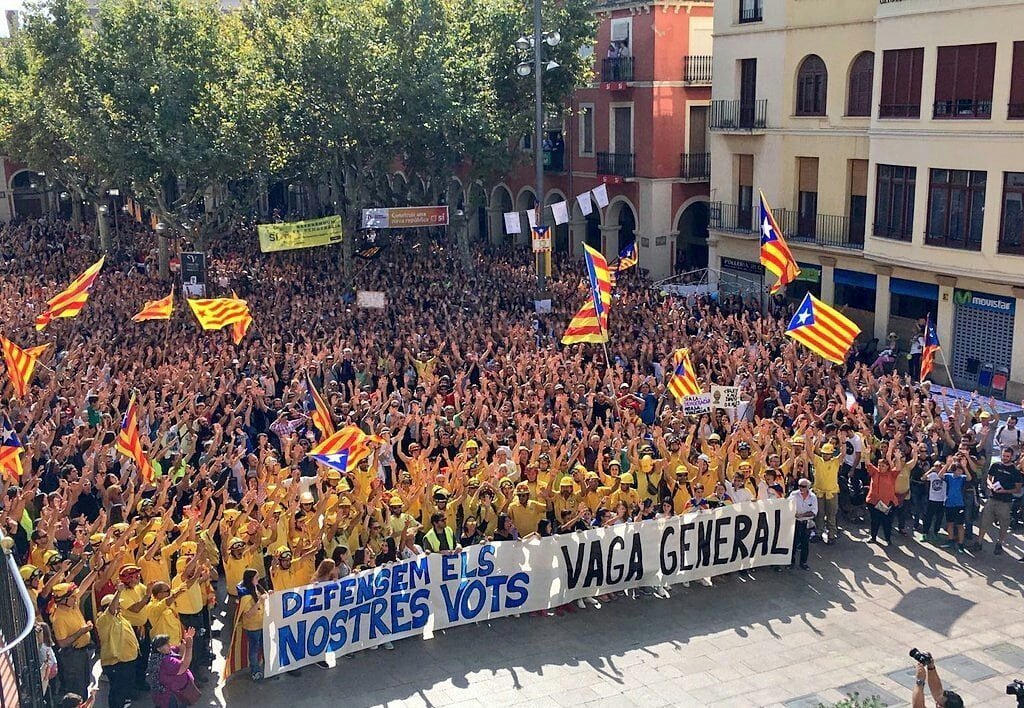 The decision of judge Llarena brought thousands to the streets across Catalonia on Friday. In Barcelona five-to-ten thousand responded to a call by the Committees for the Defence of the Republic to march to the Delegation of the Spanish Government in Barcelona. Before they could get there they were blocked by a line of riot police from the Catalan Mossos d’Esquadra. When the demonstrators tried to push through police lines, the Mossos responded with brutal charges which left dozens of people injured and did not even spare properly identified journalists.
The decision of judge Llarena brought thousands to the streets across Catalonia on Friday. In Barcelona five-to-ten thousand responded to a call by the Committees for the Defence of the Republic to march to the Delegation of the Spanish Government in Barcelona. Before they could get there they were blocked by a line of riot police from the Catalan Mossos d’Esquadra. When the demonstrators tried to push through police lines, the Mossos responded with brutal charges which left dozens of people injured and did not even spare properly identified journalists.
Meanwhile, in Pça Catalunya at least ten thousand gathered following the appeal by the more moderate ANC with the support of ERC, JxCAT and Catalunya en Comú. There were mass rallies in many Catalan towns and cities as well as road blockades, which were particularly big in Tarragona (where again the Mossos charged against protesters) and in the French border at Puigcerdà
No hi ha prou presons per tanta dignitat! Obeir el mandat popular no és cap delicte. ✊ #PrimaveraCatalana pic.twitter.com/yZFyTzCOKp
— CUP Sant Martí #CapgiremBCN (@CUPSantMarti) March 25, 2018
In Lleida, at the end of the rally, protesters blocked the high speed railway tracks at the main station. There were echoes of the 8 November general strike against repression, which was also marked by mass road blockades.
It is very significant that the main actions on Friday took place under the banner of the CDRs which have been competing for the leadership of the movement from the moderate ANC. It was also clear that people in the protests were extremely angry and want more than just another round of peaceful demonstrations at the end of which people go back home to wait for the next round of repression from the state. There is a mood of anger and frustration building up. (This thread from Revolució chronicles the protests on Friday.)
Cowardice from the Spanish left
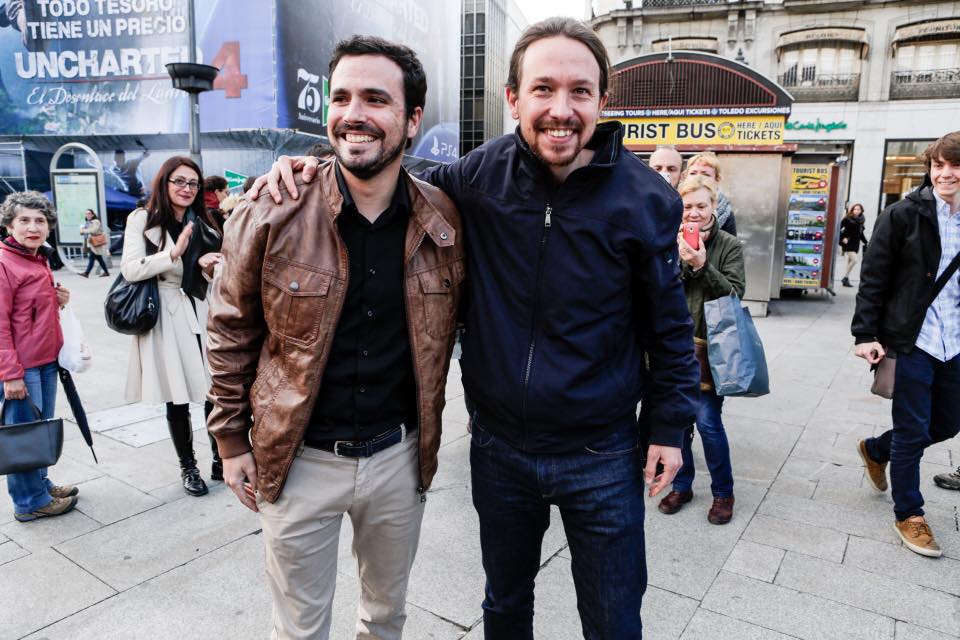 The response of the Spanish left parties was weak and cowardly, yet again. Leaders of United Left and Podemos “regretted” the jailings and called for dialogue, but fell short of calling for the release of the political prisoners or organising any protests in the streets.
The response of the Spanish left parties was weak and cowardly, yet again. Leaders of United Left and Podemos “regretted” the jailings and called for dialogue, but fell short of calling for the release of the political prisoners or organising any protests in the streets.
This is a serious mistake and a scandalous dereliction of duty. The assault on basic democratic rights in Catalonia is not and cannot be a matter of indifference for the left and the working class in the rest of the Spanish state. The strength and legitimacy the state is gaining from its actions in this case will be tomorrow used against anyone who dares challenge its rule anywhere in the Spanish state.
It is already being used. The defence of the democratic rights of the Catalan jailed politicians it is not just a matter of elementary solidarity but also a crucial matter of self-interest and self-defence.
A welcome and significant exception to this attitude was that of United Left Madrid Federation, which made a clear appeal for the freedom of the political prisoners.
El sentido de “justicia” de este Régimen es una amenaza para las libertades y derechos democráticos. Nuestra solidaridad con el pueblo catalán y los ex-concellers detenidos Turull, Rull, Romeva, Forcadell y Bassa #LlibertatPresosPolítics
— IU Madrid (@IU_Madrid) March 23, 2018
Additionally, United Left Euro MP Marina Albiol called for “the streets of all towns and cities to be filled in defence of democracy and against repression.”
Mes presos polítics. S’haurien d’omplir els carrers de tots els pobles i ciutats de solidaritat, en defensa de la democràcia i contra la repressió. No pot ser que no passe res…
— Marina Albiol Guzmán (@MarinaAlbiol) March 23, 2018
The second round of the investiture debate took place on Saturday. Again, we could see the cowardly attitude of ERC and JxCat. What they should have done was go ahead ahead with the vote for Catalan president, with Turull as the candidate.
The election of a Catalan president while he was in jail would have sent a very powerful gesture of defiance. In those conditions it would have been justified for the CUP to lend him the necessary two votes, while making clear their opposition to the policies he represents. They did not dare take that step, one which would have been perfectly legal, as Turull has not yet been tried and has not been barred from public office. The session proceeded but no vote was taken, and instead a formal declaration in defence of democratic rights was agreed by all pro-independence parties and CeC.
Puigdemont’s arrest
At the same time as he issued his formal indictment and decided to jail the five, judge Llarena also issued euro-arrest warrants against those who are in exile and indicted. This includes Carles Puigdemont, the Catalan president dismissed by the Spanish State on 28 October.
At the time he was in Finland attending a public debate on the Catalan case. The Spanish state requested his arrest from the Finnish authorities. Puigdemont was already on his way to Germany, but he was being followed by agents of the Spanish security force. They waited until he reached Germany on Sunday morning to get the German police to detain him.
The reason? Of all the countries involved (Finland, but also Sweden and Denmark, through which Puigdemont travelled, and Belgium, where he was residing), Germany is the one that is most likely to agree to extradite him to Spain, as its penal code contains a crime that can be equated to ‘rebellion’.
The arrest of Puigdemont, again, brought tens-of-thousands to the streets at very short notice and during the usually politically dead Palm Sunday. The ANC called a demonstration to the German consulate in Barcelona, which according to local police was attended by 50,000. The mood was defiant, with chants of “no tenim por” (“we are not afraid”).
? Tota la Gran Via plena, de passeig de Gràcia a Marina. Espectacular! ? Ni un pas enrere! Per la #Llibertat! #RepúblicaARA pic.twitter.com/bKfbF4xxBB
— Assemblea Nacional (@assemblea) March 25, 2018
Tens of thousands marched in towns and cities across Catalonia. This time the road blockades were more widespread and involved larger numbers. The biggest was carried out by over 4,000 people in the A7 highway in Girona, but there were others in Tarragona, Puigcerdà, Sallent and so on.
A separate demonstration in Barcelona of 15,000 to 20,000, called by the CDRs and the CUP, attempted again to march to the building of the Delegation of the Spanish Government in Catalonia. This time, repression was even more brutal, leaving over 100 injured.
carregant… disparant, charging and shooting #primaveracatalana #Mossos pic.twitter.com/D3gIJqhInV
— Adam Lang (@admlang) March 26, 2018
Catalan riot police drove riot vans straight at people and charged inside packed bars. There were burning barricades and skirmishes in the Eixample district where the Delegation is located, while neighbours came out on balconies banging pots and pans.
Furgonetes dels antiavalots dels @mossos circulen i fan perillosos girs ràpids al centre de Barcelona per dispersar als manifestants. (Desconec autor del vídeo). pic.twitter.com/GqZHWrYANE
— Anna Punsí (@punsix) March 25, 2018
There were also hundreds of solidarity and protest rallies in towns and cities across the Basque Country.
Calls for a general strike
Sunday’s protests were marked by slogans calling for the “Catalan Parliament to decide on the Catalan president” (meaning with no interference from the Spanish state) and for “Parliament to make Puigdemont president”. Here is a clear call for the will of the people to be respected, against the undemocratic assault of the 1978 regime.
It is not so much a question of electing Puigdemont as president per se, but rather of electing a president that was undemocratically dismissed by the Spanish state for carrying out the will of the people and then got a renewed majority out of the polls on 21 December.
The slogan is also an implicit criticism of the leadership of ERC and JxCAT, who have spent nearly three months making one concession after another, accepting the limits imposed by the Spanish state. Now people are saying enough is enough.
There were many calls for a general strike (which had already been heard on Friday) as a way to escalate the response against repression. This shows that the movement is tired of mass demonstrations that lead nowhere and is demanding that the protests should be escalated.
The experience of the general strikes against repression on 3 October and 8 November has resulted in powerful lessons. Correctly, the CUP has offered to join the presidency of the Catalan parliament if it is to invest Puigdemont as president, which would mean breaking with the limits imposed by the Spanish state.
The CUP spokesperson in Parliament, Carles Riera, challenged the other pro-independence parties: “let Parliament elect Puigdemont as president, the people in the streets will confirm it”, clearly linking the decision of the institution with the struggle in the streets. If their past record is anything to go by, it is very unlikely that either ERC or PDCAT will want to go down this road.
CUP deputy Vidal Aragonés, added that a “general strike is the necessary response of the people” and made a call for the “self-organisation and mobilisation of the masses”.
La @cupnacional està oferint formar part de la Mesa del Parlament per fer investidura de Puigdemont.
Demanem Pacte pels Drets Civils i Polítics.
Considerem la vaga general la resposta popular necessària.
Autoorganització i mobilització de masses.
— Vidal Aragonés (@VidalAragones) March 25, 2018
Topple the regime
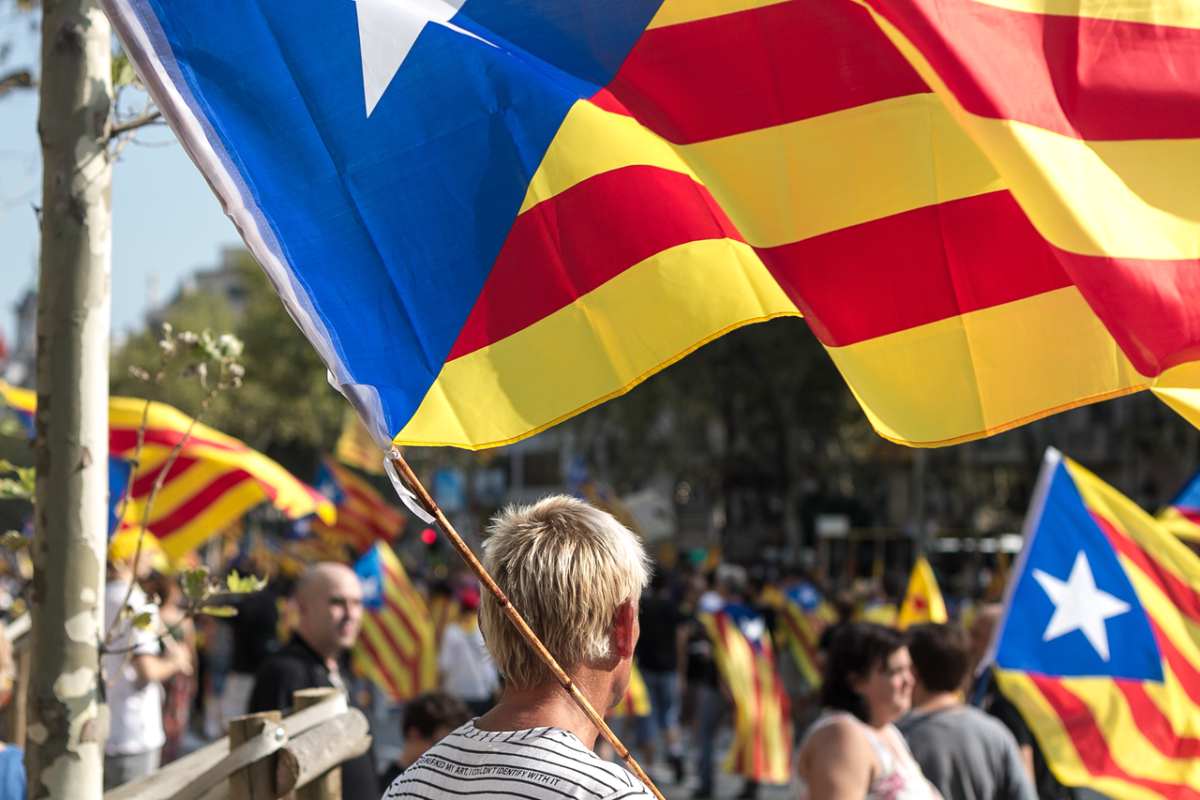 This is the correct line. As we have insisted before, the main lesson of the Catalan October is that the petty-bourgeois, nationalist politicians always vacillate at all the crucial moments and that any advance of the movement has been the result of the irruption of the masses in the streets. We saw this on 20 September when the people surrounded the Department of Finance, on 1 October when they defended the polling stations, and on the 3 October and 8 November strikes against repression.
This is the correct line. As we have insisted before, the main lesson of the Catalan October is that the petty-bourgeois, nationalist politicians always vacillate at all the crucial moments and that any advance of the movement has been the result of the irruption of the masses in the streets. We saw this on 20 September when the people surrounded the Department of Finance, on 1 October when they defended the polling stations, and on the 3 October and 8 November strikes against repression.
To prepare the general strike, committees should be organised in all workplaces and also in schools and universities, to supplement and coordinate with the existing CDRs that have played a crucial role in recent days. A general strike cannot consist only of mass road and railway blockades, if it is to be successful it needs to be fought for and argued in every workplace and factory.
Another crucial element in the equation is the need to make a clear and bold appeal to the working class and the left of the rest of the Spanish state, explaining that this struggle against repression and ultimately against the 1978 regime is also their struggle, and they need to join in.
The situation is now more favourable for such a call than perhaps was in October and November last year. In the last few weeks we have seen the magnificent movement of the 8 March Women’s Day Strike, the mass movement of pensioners, the continued resistance in Murcia in the struggle against high speed train tracks and so on. There is a renewed mood of confidence and of struggle against the right-wing, PP government. The recent 48-hour strike at the San Fernando de Henares Amazon warehouse is also connected to this process.
While it turns the screws of repression, the regime is in fact weak. There are plenty of reasons (repression against democratic rights in Catalonia, repression against freedom of expression and jailing of rap artists, attacks on pensions, corruption scandals and so on) for a unified mass movement across the whole of the Spanish state to bring down the hated PP government. As the old Franco resistance, Catalan song says: “if I pull hard over here and you pull hard over there, it will certainly turn; if we all pull it will fall down, as it is already rotten”.
As the comrades from Lucha de Clases argue, it is necessary to build a united front in defence of democratic rights in Catalonia and across the whole of the Spanish state with the aim of mobilising in the streets and bringing down Rajoy’s regime.






